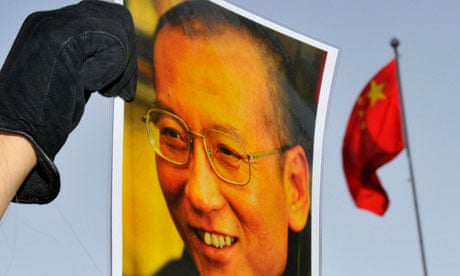There's an apocryphal story about Picasso, who was asked to subscribe to a fund for getting Soviet writers out of prison, but refused. They write better in prison, said Picasso. Oddly enough, in the more recent case of Jeffrey Archer, he would have been right.
Leaving aside Lord Archer and the Russians for a moment, when you come to examine Britain's library of prison books, the pickings are surprisingly slim. In the English tradition, I think there are just three manuscripts directly attributable to the clink: John Bunyan's Pilgrim's Progress, Oscar Wilde's De Profundis (and "The Ballad of Reading Gaol"), and Money in the Bank by PG Wodehouse, written during his internment in Nazi Germany.
Still, from Shakespeare to Byron, self-expression always came with some fear of reprisal, and the list of English writers whose work has been shaped, however slightly, by the prison cell includes Thomas More, Walter Raleigh, Daniel Defoe and Charles Dickens. Arguably, his father's tenure of the Marshalsea (a debtors' prison) was, as much as the celebrated "blacking factory", the novelist's defining experience.
Further afield, in the English-speaking world there were the injustices of the Raj and, later, of apartheid. From South Africa, Breyten Breytenbach's masterpiece, True Confessions of an Albino Terrorist, owes everything to his imprisonment, which takes us back to Picasso's provocative contention.
But here in Britain, for the last 100 years, our literature has been unrestricted. Some homosexual writers might dispute that, but most writers have enjoyed real freedom. What's more, most British readers would say they live in a free society.
Sadly, this has not been the experience of writers, or readers, worldwide. Beyond Bars, the latest issue of Index on Censorship, a co-production with English Pen and edited by Natasha Schmidt, presents a chilling catalogue of literary repression in our time, from China's Nobel laureate Liu Xiaobo, to Orhan Pamuk (Turkey), Faraj Sarkoohi (Iran) and the murdered Anna Politkovskaya (Russia).
Beyond Bars is also a reminder of some inspiring journeys from prison to liberation, and thence to positions of political power and influence: Vaclav Havel in the Czech Republic and Mohamed Nasheed of the Maldives.
These are beacons of hope in a dark and threatening landscape. The 21st century has seen no falling-off in the recurrence of authoritarian regimes, or in their appetite for violent repression. In September 2010, journalist Aleh Byabenin, who had spent 15 years fighting Belarusian dictator Alexander Lukashenko, was found hanged at home. Few believe the official verdict of suicide. In Mexico, eight journalists have been murdered and three have "disappeared" since last January. On and on it goes: intimidation, torture and imprisonment.
Perhaps the most chilling section of this compilation is the section devoted to blogs. Once, in the blissful dawn of the world wide web, online writing was greeted as a golden opportunity for free speech. How swiftly have we discovered that repressive regimes police cyberspace as vigilantly as the city streets.
Bloggers recently arrested include Ali Abdulemam (Bahrain); Irek Murtazin (Russia), who is now in a penal colony; Tal al-Mallouhi (Syria), detained for posting poems about Palestine; Suwicha Thakor (Thailand), serving a 10-year jail sentence for criticising the monarchy; and finally Hossein Derakhshan (Iran).
The case of this Iranian-Canadian blogger is especially disturbing. Arrested after returning to Iran, Derakhshan was convicted of collaborating with enemy states, "insulting what is holy" and creating "immoral websites". Whatever he had learned in the libertarian west was plainly intolerable at home. Now he's in prison.
Much of Beyond Bars describes the painful collision of rival, and opposed, cultural traditions, but that's never the whole story. As Tom Stoppard puts it in his introduction: "When you're safe and sound, you think that being a writer is the most interesting thing about you, and a kind of protection." The Writers in Prison Committee, celebrated here, "cuts through that to a world where it's sometimes safer not to be one [a writer]". Out in a free society, says Stoppard, "it's debatable whether the writing exerts any leverage over the fate of nations, but when it comes to the fate of individuals... Political prisoners are less vulnerable when they are kept in our view." If you want to support these writers in prison, click here.
Pass the test and pop it in your stocking
All the signs are that this is going to be the Kindle Christmas. But old-style publishing lingers tenaciously. Redstone Press, a feisty independent, has stumbled upon an unlikely seasonal bestseller, the Inkblot Test (£11.95), the brainchild of erstwhile Observer book reviewer William Hobson. It's a witty commercialisation of the Rorschach test, a famous psychoanalytic game about perception that turns out to have an unexpectedly playful side. Apparently Topshop and Urban Outfitters have given it their seal of approval, and Hobson tells me that Rorschach was a dead ringer for Brad Pitt. So, neither a couch nor a Swiss accent comes with this natural stocking filler, but it promises hours of harmless fun for children between the ages of seven and 70.
Woody Allen finds himself in Arcadia
Another small press that's enjoying a Christmas windfall from an unlikely source is Gary Pulsifer's Arcadia Books, known to literary London as the publishers of Shere Hite, Francis King and Lisa Appignanesi. When Woody Allen decided to locate his most recent new film, You Will Meet a Tall Dark Stranger, starring Anthony Hopkins, Antonio Banderas, and Naomi Watts, in London, the location scouts for his script set about finding an appropriate "small publisher". Allen finally settled on Arcadia in Nassau Street, W1. Pulsifer did not expect his office to survive the cutting room, or to be exposed to the real world without fictional disguise, but Arcadia's appeal proved stronger than the editor's scissors.

